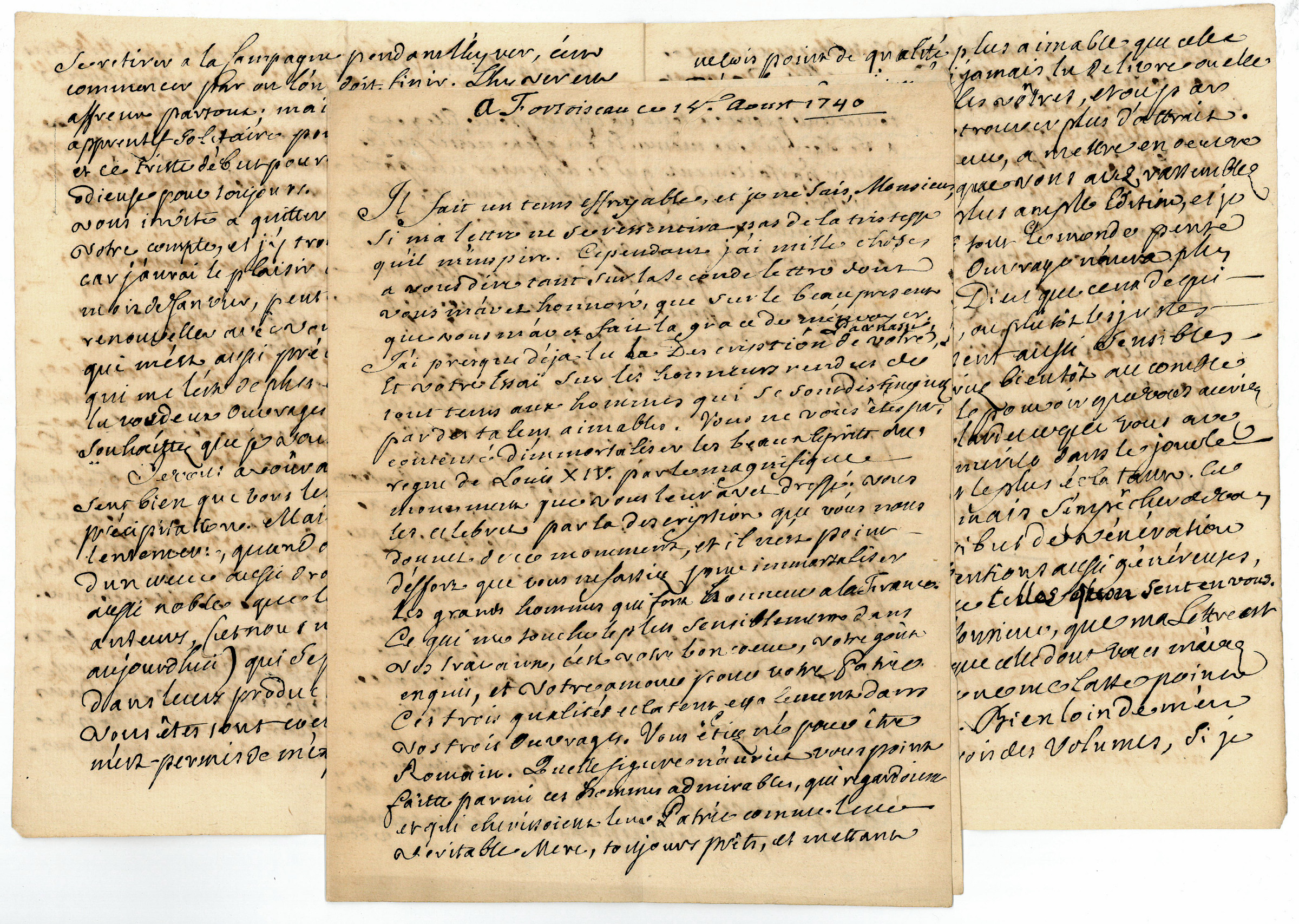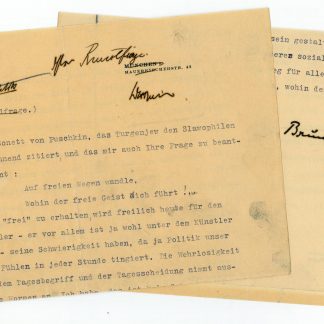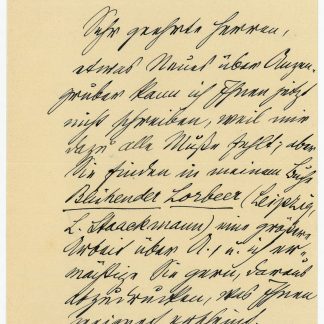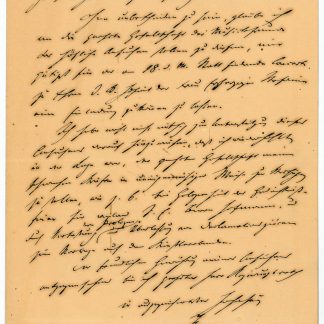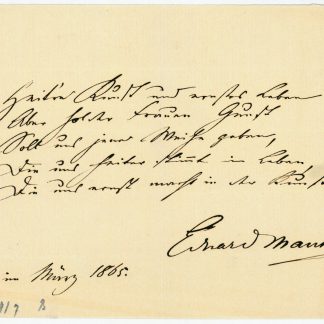Autograph letter signed.
4to. 8 pp. on bifolia. In French.
€ 6.500,00
Long and insightful letter to the famous courtisan and biographical chronicler Évrard Titon du Tillet (1677-1762), touching upon various subjects, including Titon du Tillet's wish to withdraw to a calm retreat that matches Destouche's own preference for seclusion. The first part of the letter is full of praise for Titon du Tillet's two biographical works, the "Parnasse françois", first published in 1732 and augmented in 1743, and the "Essai sur les honneurs" from 1734, affirming that "there is no effort" to which Titon du Tillet "would not go so as to immortalize the great men who bring honour to France". Based on this patriotic sentiment, Destouche chastises Voltaire in a curious tirade, culminating in an epigram: "Not only do I love everything that can contribute to the glory of our Nation, but I have not forgotten any efforts in foreign countries where I have lived for so long, to defend it against the attacks of prejudice, injustice and envy, in this quite different from our otherwise estimable Voltaire, who dares to make a point of honor of exalting our neighbors at our expense and who inspired me to the epigram you are about to read, and the indignation that gave it all its vivacity [...]". It was to be published in a "book of epigrams", possibly identical with the extended 4th volume of his collected works consisting of letters, two comedies, poetry, and epigrams that was published in The Hague in 1742. To judge from Voltaire's brief criticism of Destouche's plays in "The Age of Louis XIV", the antipathy was mutual.
The second part of the letter concerns the advantages of seclusion in contrast to the pretenses of the court or the hustling and bustling of court and city that he underlines with an epigram attributed to Seneca, although likely of Destouches own invention: "Malheur à l'homme prévenu | Qui sur son mérite se fonde, | Et qui, connu de tout le monde, | Meurt sans jamais s'être connu". However, Destouches advises his correspondent to wait until spring before leaving Paris, asserting: "To retire to the country during winter is to begin where you must end [...] Wait until the fine season invites you to leave Paris". He promises then to join him. In closing, Destouches apologizes for his scribbling, comparing himself to Madame de Sévigné, famous for her extensive letters: "I am like Mme. de Sévigné, I write everything in one fell swoop, and I would become cold and languid, and thus quite boring, if I levelled every word [...]". Minimal tears and browning.

